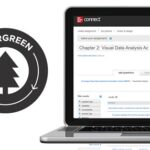An enterprise resource planning (ERP) system is a powerful tool for overseeing campus business operations, but there are some things an ERP wasn’t designed to do well.
That begs the question: What if you could uncouple your human resources (HR) systems from the limitations of your ERP?
During an eCampus News webinar, you’ll hear from HR experts as they weigh in on expanding workforce management capabilities and streamlining processes by doing just that.
You’ll learn how colleges and universities can:
- Achieve appropriates staffing levels – through better management of labor costs and staffing needs.
- Pay employees correctly – with an automated solution that reduces the chance for errors.
- Improve the employee experience – by aligning people, processes, and technology to help attract and retain workers.
- 3 ways to create a strong STEM pipeline in higher ed - November 22, 2024
- In higher ed, leaders see microcredentials as the future - November 20, 2024
- 1 of 3 Hispanic students have dropped out of college at some point, survey says - November 19, 2024
More from eCampus News
McGraw Hill Transitions from Traditional Textbook Edition Publishing Cycle with New Evergreen™ Delivery Model
COLUMBUS, Ohio (GLOBE NEWSWIRE) — McGraw Hill announced the launch of an industry-first delivery model that releases digital product updates directly to existing courses already built by instructors, replacing the…
Identity theft preys on campuses–here’s what we can do about it
In today’s digital era, the nature of fraud has evolved dramatically, and schools now are contending with increasingly complex cyber threats that carry much heavier consequences.
Community college enrollment gains led by dual-enrolled high school students
Dual-enrolled high school students are closing in on accounting for nearly half of Colorado’s community college enrollment, according to fall 2024 enrollment data.
3 ways to create a strong STEM pipeline in higher ed
Creating a robust STEM career pipeline in higher education is essential to meet the growing demand for professionals in fields crucial to innovation, technological advancement, and economic growth.
Non-Traditional Students and Their Impact on Higher Education
What is a non-traditional student? A non-traditional student is any college student obtaining their education outside the traditional face-to-face classroom. How many college students, both undergraduate and graduate, have earned…
How higher-ed can benefit from the family navigator model
Nearly everyone who has had any interaction with a college or university has had the experience of being sent to a different office or area for information, only to be further redirected at that point.





